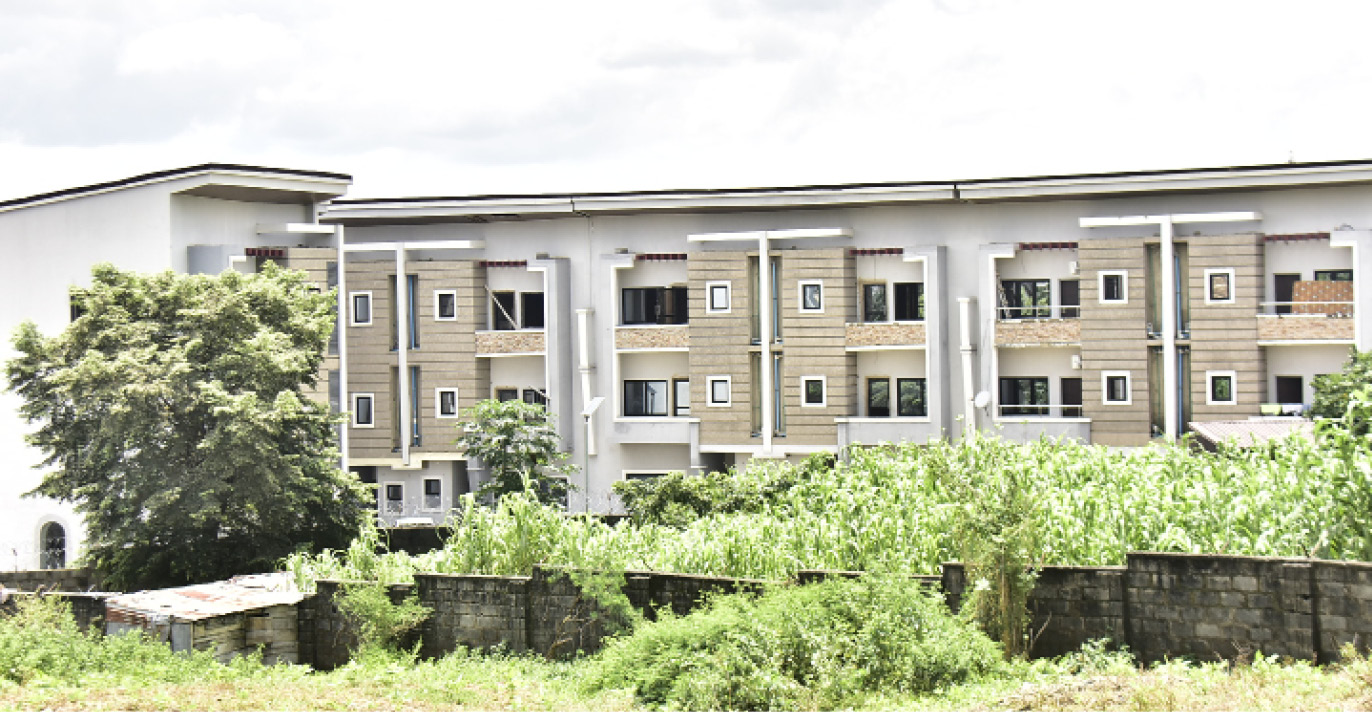‘Nigeria has one of the lowest homeownership rates’
The Association of Housing Corporations of Nigeria (AHCN) has decried Nigeria’s low homeownership rate, saying the country ranks lowest at 25 per cent, especially when compared to Brazil (74 per cent), Kenya (75 per cent), South Africa (70 per cent) and Indonesia (84 per cent). Speaking on the occasion of this year’s World Habitat Day […]

A residential building at Life Camp in Abuja
The Association of Housing Corporations of Nigeria (AHCN) has decried Nigeria’s low homeownership rate, saying the country ranks lowest at 25 per cent, especially when compared to Brazil (74 per cent), Kenya (75 per cent), South Africa (70 per cent) and Indonesia (84 per cent).
Speaking on the occasion of this year’s World Habitat Day with the theme: “Mind the Gap: Leave No One and Place Behind, President of AHCN, Dr Victor Onukwugha, said it was sad that at 62 Nigeria was still beset with confusion about how to develop the housing sector.
He said, “Inappropriate mortgage system that still depends largely on outright sale of houses that are out of the reach of the pocket of the people who really need them; lack of housing finance; idle funds in the system kept and placed in fixed deposit and treasury bills generating selfish income to the pockets of privileged few,” were some of the challenges plaguing the housing sector.
Onukwugha, who also lamented the high cost of building materials in the face of rich deposits of natural resources that can sustain vibrant local building materials production, identified ineffective policy implementation as one of the major setbacks in the sector.
He further said that a crawling mortgage market without a vibrant platform that would create unhindered access to affordable mortgages, as well as exit points for developers who invested in housing and inappropriate land administration that could offer acceptable access to appropriate and viable real estate transactions were crippling the sector.
He explained that “There is no doubt that all manner of opportunities abound in the sector, but what have we done as a people and stakeholders to ensure these opportunities are converted to gains to address our housing problems?
“What happened to the post-COVID-19 Economic Sustainable Plan that aimed at creating 1.8 million jobs within 12 months; with the construction of 300,000 homes two years after?
“At the inception of the current administration in 2015, it promised to develop two million new homes in its first year in government and one million annually thereafter with a pledge to establish a vibrant mortgage system with single-interest rate to drive home ownership. What is the total housing units developed seven years down the line?”
The Chairman of the Board of Trustees (BoT) of AHCN, Architect Gabriel Aduku, who also spoke, said housing was a basic need just like food and therefore urged the government to encourage the private sector to develop the sector.
He said, “Housing is the second necessity of life; as you’re growing up, you have a need for accommodation.” He further said that policy implementation was an issue in the sector, noting that if succeeding governments had built on the President Shehu Shagari administration’s housing programme, the deficit in the country would have been addressed.
Aduku, a former Minister of State for Health, added that housing had the capacity and potential to boost the Nigerian economy.
